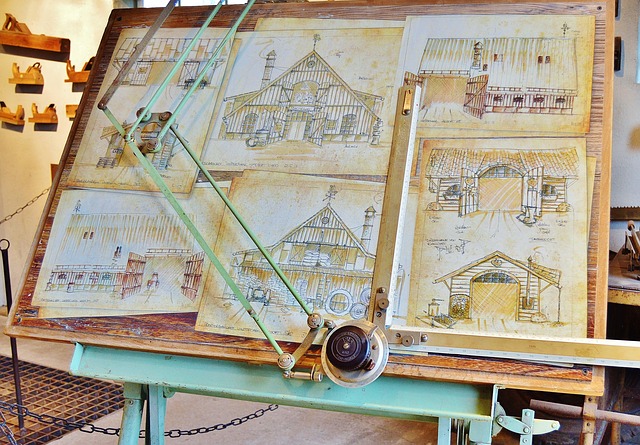
by Dave Cooper | Aug 23, 2018 | A2R, Building Recovery, Method

Isolation is one of the big four issues
So this post is on isolation but the principle could be called ‘relating’. This is the second in this series on the core principles of growth into recovery from addiction. I want to continue to remind you that these are ideas that will produce personal growth and development. As such they will be useful to everyone who tries them.
That’s why when I train people to run a ‘Building Recovery’ group I always remind them that they are to be participants in the course, not just teachers. So let’s take a look now at why I want you to think of isolation as one of the if not the main enemy to growth and recovery.
ISOLATION
Let’s start with a definition before we go on to talk about why isolation is so bad. The definition of isolation is ‘keeping apart’. Cambridge Dictionary. Notice how close this is to a definition of ‘holy’ which is to be ‘set apart’. Never confuse these two! Remember that the Bible tells us that even Satan appears as an ‘Angel of light’. 2 Cor 11/14. Bad things often appear as good things and good things are often lost for fear of doing a bad thing!
Separation is not isolation. We are to be separate but not isolated! Seeking solace in quiet times, going on retreats and meditation breaks is not isolating. What’s the difference I hear you ask. Well Separating is a thing but isolating isn’t!
Isolation is not a thing
Be careful when you think about something. You see when you think about something you make it a thing. Did you ever think about a problem and get all worried and anxious but then found out it wasn’t anything? Well you made nothing into something for a while didn’t you? Isolating is like that. You can be tempted to think about ‘isolating’ because it seems like this is the problem you need to solve. Once you turn it into something you have been distracted away from what is effective because isolation is more like the absence of something.
Isolation is not a cause it’s an effect. Isolation is what happens when we stop relating to living things. It happens when we stop talking about what’s real. It’s what happens when we stop being honest and when we stop being authentic. Choosing to be alone is not isolating.
Why is isolation so common?
So if isolation is the consequence of withdrawing from the world of living things. The first question becomes “why is it so popular”? I mean if it’s so bad for you, why are we all doing it? To answer this question we need to look again at it’s opposite. Not why are we doing this but what is so hard about the alternative.
One of hardest thing you do is to be involved in the living world. Ask yourself now. How involved are you with living things? When you think about this, don’t be fooled by things like how busy you are or how many meetings or events you attend. Not even how much charity work you are doing! Think about your close relationships. How authentic are you in those relationships?
If your answers disappointed you, I want you to think about why and how you have developed this situation. What makes the dead world so attractive? Here is a list that is not comprehensive but will give you a few things to think about changing and to help you to be understanding and empathetic as to why you have got to this stage. This list is relevant to most situations whether you are talking about alcohol, work or any other dead thing.
It’s easy – It’s safe – It’s less challenging – It’s consistent – It doesn’t answer back – It’s always where we left it.
You may be surprised at the amount of things I am including in the ‘dead world’. It’s much easier to say what is in the living world, people! Whatever spiritual beliefs you have you will probably recognise that people are the most alive thing we have. So, in essence they are the opposite of the list above. They are not easy. Often not safe. They are challenging, often inconsistent, they answer back and they do not stay where we thought we left them!
When we look at the difference between these lists it’s pretty easy to see why most of us are choosing the dead over the living. But there are consequences!
Why is isolation so bad for us?
Isolation is something we always knew was bad. I have worked in addiction treatment centres for years and we always cited it as something to avoid. Neuroscience is now showing us that it’s even worse than we thought. Don’t take my word for it, go and do your own research. Any short view of the internet will tell you that the science is consistent on this question. If I were coaching you into recovery I would want you to be interested in discussing the following short list.
We need outside influences
Firstly let’s take a look at your thinking. What would you say about it. Is it good? I know that you have to mainly rely on yourself to get through life but how are you at solving problems, critically analysing situations etc? Well, here’s the problem. Whatever issues there may be with your thinking, they are multiplied when there are no outside influences.
When you don’t share your problems. Don’t let people in. Don’t engage in open ended conversations or let people know what you are thinking. Every time a thought goes around your head any flaws in your thinking are multiplied. Engaging in the living world and improving your relationships is the best way to iron out any flaws in your thinking.
You may have all sorts of problems with doing what I am asking. Trust issues can be huge when it comes to other human beings. Vulnerability can also be a big issue. Don’t think you have to do all this straight away! I always ask my clients to think of these things as aims.
Dead things don’t change us
I don’t care how much you love your work, your heroin or your gambling. The biggest problem you have here is that relationships with these things do not change you. Think about it. You are being made worse from both directions! Not only are you needing to change and withdrawing from the things that change you. You are also getting more involved with the things that keep you the same!
You will have noticed a tendency to stagnate in your life through your addiction. The ‘Groundhog day’ experience is common in addiction. The more you become involved (enter a ‘bonded relationship) with dead things the more stuck you will be. No matter how rich you get or how safe you feel.
Modern forms of isolation
New forms of developing relationships with dead things are emerging all the time. They are becoming more and more disturbing as you might imagine. At one time we thought of isolation as people who were uncommunicative. Distant spouses and people who were always at work. Loved ones who were always high on some drug or other. More recently we would be talking about people who were forever online gambling or gaming.
Today we would add people who are always on their phones and tablets. Social media (or antisocial media as I like to call it) is quickly becoming a huge problem. As things like FOMO (fear of missing out) and greater ranges of news feeds are available. Internet addiction or IUD as it’s sometimes called is a fairly new phenomenon. However given the short amount of time these things have been available the rate at which it is growing is becoming a real concern. And even more concerning might be our reaction to it with attitudes like “some people are not ready for the technology”.
Sex toys are becoming more life like. A new generation of robot sex dolls are about to hit the market this year. As they become cheaper they will be common place in our lives before long. Sex therapists are saying that some people will be vulnerable to ‘falling in love’ with them. Forgive me if this just got a little bit too disturbing for you but this is where we are now and best to know that. Catering for and encouraging all manner of perversions, and drawing in the vulnerable through these manufactured dolls.
The Simple Solution
So this article has been about one of the founding principles of growth and recovery from addiction. Isolation, or, more specifically avoiding it, is one of the most important principles and the solution is simple but challenging. Make it an aim to move further into the living world. Do a little bit every day. Ask your self “is what I am doing now part of the living world or the dead world”?
 Please do not try and change too quickly! I always suggest 5% to my clients. Imagine a set of controls for all your relationships. One for honesty, one for authenticity. One for how quick you are to apologise. Another for assertiveness.
Please do not try and change too quickly! I always suggest 5% to my clients. Imagine a set of controls for all your relationships. One for honesty, one for authenticity. One for how quick you are to apologise. Another for assertiveness.
Try asking yourself in any given situation “If I turned up this slider 5%, what would that look like here”?
Thanks for taking the time to read this. See you on the next one.

by Dave Cooper | Aug 15, 2018 | A2R, Building Recovery, Method
 I have been very busy recently filming my online course (Building Recovery) and finishing my book (of the same name). So I was wanting to get back to writing my Blog and thought to myself “what are the core principles that inform all my work with clients who want to recover from addictive lifestyles”? So I wrote down everything that informed my work, basically things that I would not contradict or stray from in any situation.
I have been very busy recently filming my online course (Building Recovery) and finishing my book (of the same name). So I was wanting to get back to writing my Blog and thought to myself “what are the core principles that inform all my work with clients who want to recover from addictive lifestyles”? So I wrote down everything that informed my work, basically things that I would not contradict or stray from in any situation.
This could be valuable to you in your striving for recovery for two reasons. Firstly because I believe these principles are valuable for everybody, not just for addicted people. This is because, like all the rest of my teaching are about personal growth. Secondly because they will provide an overview of how I have learned to approach this work. So reading about them will help you to understand the coherence in this approach. How it all fits together as a useful whole. This will help you to understand why I sometimes suggest certain things that might not be obvious to you.
So these are the principles my recovery building stands on. If you include these principles in your recovery they will provide you with the best foundation and serve you well.
The Core Principles
So what are the core principles? What is it that I could not do without in this work? You will notice a theme in the following list. It is a theme that speaks to my beliefs and experience over the last thirty years.
The only way authentic recovery is to outgrow your problems
My belief is that you cannot recover by improving yourself in the place you are in. You must outgrow your difficulties. You must be lifted higher. Psalm 40 says “I cried out to you in my distress and you inclined you ear to me. You lifted me out of the miry clay and placed my feet upon a rock”. Here is a list of things that will be part of this series.
1 – Harmony
No I’m not offering singing lessons! Although the way music works in creating a beautiful chord through different harmonising notes is a great start. So the actual principle here is something like ‘stay on your good side’. So this is about inner harmony not outer harmony (often confused). The reason it makes it onto my list of core principles is because we simply cannot move (grow) whilst we are in disharmony.
2 – Isolation
Yes I know, we always knew that isolation was bad! The point here is that all the most recent research is showing us that it’s even worse than we thought. So the principle here is something like ‘develop relationships with living things (people preferably)’. Coming out from isolation (inside) is one of the most challenging things we can do and so it needs preparation and a deep level of acceptance that tings like this are journeys ‘aims’ rather than quick fixes.
3 – Growth
When we are threatened one of the most common aspects of our survival strategies is to stop growing. To avoid challenges and to ‘shut down’. Addiction becomes one of the ways we can do this and develop a ‘Groundhog day’ type of life. It makes sense then to see recovery as a reversal of this process. So the principle here is something like ‘have the right aims’. So often addicted people start with the latest problem such as “I have no money” or “I need to stop taking drugs”. These are usually ‘post addiction problems’ when we should be concentrating on the ‘pre addiction issues’.
4 – Self management
My work in this field took a huge leap forwards when I took on board the complex nature of being a human being! I often remind my clients that when we say ‘I’ we are using a complex statement! So the core principle here is something like ‘you are always working with what is between your ears’! To start using our daily experiences and challenges to grow into our recovery we need to understand what is happening during difficult moments and the relationship between our brain and our mind.
So there it is. Take the time now to study the episodes in this series. Starting with number one HARMONY.
 HARMONY
HARMONY
Let’s start with a definition before we go on to talk about why it’s such an indispensable part of authentic recovery. Harmony is defined as ‘the combination of simultaneously sounded musical notes to produce a pleasing effect’. Cambridge Dictionary.
It’s this idea of difference in the sounds that is so important. Notice that harmony is not lot’s of same sounding notes. A bunch of ‘E’ notes may make a nice sound bit they do not make a chord.
If you have been thinking of yourself in the most obvious and simple way then your behaviour and thoughts will often make you feel crazy! Every time you contradict yourself in your behaviour speech or attitude you will be wondering “how crazy am I, I mustn’t let anyone know”. Let me reassure you. Contradictory behaviour does not mean that you are crazy! It’s a matter of understanding how complex you are.
I would say that ‘I’ is shorthand. Short and convenient for everyday life. “I did this” “I want that” makes sense. But this is not sufficient for a rich understanding of what it means to be human. In order to manage yourself well and grow into a full recovery you must start to take into account the fact that you are a complex package of different, sometimes contradictory ideas or ‘parts’. Did you ever say “I’m in two minds about that”. Or “there’s a part of me that just won’t let go”. These are examples of this complexity. You are going to learn how to first take this complexity into account and then use it in your recovery journey.
Team YOU!
A great team creates a great harmony. Look at this picture. Imagine if they all turned up and wanted to paint the boards. Nothing would be achieved. Of course they all have the same ‘big picture’ but it is the harmony created when all the different skills are used to achieve an agreed upon goal that makes them a great team.
Conflict
I want to talk about what happens when you think too simply about yourself. You have an aim in your mind, which is to stop drinking let’s say. So far so good. At some point other thoughts turn up. Thoughts that say ‘why bother. No one will appreciate it’. or ‘No one will know if you drink on your own’. You can add some of your own. The point is these thoughts are not in agreement with your intention to stop drinking. Did you ever ask yourself why would such thoughts exist? If you have decided to do something why would you not be completely behind this decision?
Internal opposition to our own decisions in the form of temptation and compulsion, fear and selfish need are so common in our experience that we stop questioning the reason for these opposing ideas or think about why they exist. Often our reaction to these voices is to fight them.You feel a pressure to appear ‘normal’ and so try to bully or hide these things so as not to appear strange or abnormal.
One more reason we avoid doing something about this state of affairs is that we are much more focused on what can be seen than what is hidden from view. Trust me on this one little thing, it is the things that are hidden from view that are the most important and that will offer the most potential for growth and change.
Stop fighting
In the fourth episode in this series (self management) I will go into more detail about the nature of these ‘voices of influence’ but for now let’s stay with this theme of creating harmony through removing conflict. When we take the ‘fighting’ option we are led into conflict, but it’s okay because it’s conflict for a good reason, right? There are so many articles and books about how to win and how to be strong and how to fight that you may think of it as an obvious thing to do. So you try to banish the negative thoughts or to aggressively replace them with ‘positive affirmations’.
Sound like you? Let me ask you something, did it work? The fact that you are reading this is pretty good evidence that it didn’t. Let me tell you something. If you want these inner negative voices to get stronger, keep exercising them. It’s your resistance to them that is making them stronger. You need to harmonise not argue.
Don’t make the mistake of confusing your relationship with yourself with your relationship with others. These books are mainly talking about our relationships with others not ourselves. It may seem obvious to you that the same approach will work for the relationship with your self. It won’t. You see I fully agree that conflict and it’s resolution is the key to personal growth (in our relationships with others). Please click this link for my take on this. But your relationship with yourself needs a different approach.
So in relationships with other people difficulties are good. The problem is that things are very different on the inside. When it comes to yourself conflict is not the way forwards. I always remind my clients that “Your mind runs your life…. on licence from your brain”. So when you are dealing with any ‘part’ of you are dealing with a child. But a child that is much stronger than you! Overpowering it is not an option! Remember your brain can shut down your mind but your mind cannot shut down your brain!
Acceptance – the key to growth
I want to talk about a word now that has got an increasingly bad press lately. Acceptance. You know acceptance is a fantastic thing! It is the key to personal growth and development, improved relationships and greater effectiveness. But it has become known as a bad thing. Somehow we have managed to turn one of the most valuable things in our resources into an unclean unwanted thing. It is now thought of as something akin to a doormat. “I suppose I’ll just have to accept it” is nothing more than a sad sounding capitulation to our modern ears.
I want you to know that acceptance is one of the most valuable materials you can build your recovery with. Let me tell you why it is so valuable by telling you what acceptance isn’t! Acceptance isn’t agreement. When we accept something we are not saying we agree with it. We are not saying it is correct. Or that it’s permanent. Not that we don’t want to or can’t do anything about it. We are simply saying that it’s real.
You should accept something because it’s real.
The power of acceptance is felt once we have accepted something. You don’t overpower it, you don’t destroy it. You don’t disprove it. And yet, somehow you get past it!
Acceptance versus knowledge
If you have viewed my post on this subject you will have more detail by now but I still want to say something about the difference between just knowing something and truly accepting it. Knowledge is a concrete thing. It can be a block to change in it’s brutal presence. we can hate something that we know is true but we can’t change it! Acceptance is much deeper than knowledge. It is a spiritual thing not a scientific thing. When we know something we cannot change it, when we accept something we transcend it! The alcoholic who ‘knows’ he is alcoholic carries on drinking. The alcoholic who ‘accepts’ he is alcoholic stops drinking. You will see very different behaviour resulting from acceptance than from knowledge.
When I run my workshops I show an image of two men wrestling. I ask the participants to tell me what is happening. They tell me that there are two men wrestling, not surprising right? I tell them to look again and see two men who are stuck together. Neither man can leave, move, or grow whilst they are still wrestling! Again this is not about agreement or being stuck with something. It is about being free of something!
I want you to start practising acceptance as a way of life. Try saying to yourself “just for right now, this is how I feel” and “just for today, this is what is happening”. Try “I accept that I just thought that” and “I accept that a part of me does not want to stop”. Look for changes in your behaviour and different reactions to situations as you develop this acceptance habit. Remember you are not trying to change your behaviour, that just gets you back to fighting. Changed behaviour is evidence of a changed relationship with yourself.
What would your last words be?
If you had one chance to say something valuable to those you love. Only one chance to leave a thought with them that would be the last word, the last opportunity to offer advice. What would it be? What is the most important thing you could say to someone? If there was one last chance.
This was the position Jesus was in on the night he was to be crucified. His words to us are found in John 17. He first prays for himself and then following prayers for his disciples he prays for you and me! Yes, all that will follow, that’s us! So what is this last prayer. What is it that Jesus himself knows to be the most important thing he can leave us with. The most important thing to pray for. Is it that we should build great big churches? That we should convert millions? Or it that we should raise large sums of money? It is none of these things. It is harmony. Harmony is his prayer for us.
Now I have heard this harmony preached and taught as harmony between us as people but this is not what is meant. Listen to Jesus words as he describes the harmony or unity he is talking about “that all of them may be one, Father, just as you are in me and I am in you. May they also be in us so that the world may believe that you have sent me”. He is talking about internal harmony. He is talking about our relationship with ourselves. Let me give you one more example.
In Mark 3:25 Jesus says 25 If a house is divided against itself, that house cannot stand. Again this is often taken to mean the Church or our relationship with others which of course is important but listen what He says in the next verse. 26 And if Satan opposes himself and is divided, he cannot stand; his end has come. Clearly placing his words in the context of personal harmony and unity.
Whether you are a Christian or not, these words are a powerful reminder of the importance of personal harmony.
Be a good friend to yourself
One last word on internal harmony. Be a good friend to yourself. I know what it’s like to hate yourself. When I first got clean I couldn’t look at myself in the mirror to get a decent shave. To create inner harmony you have to be a good friend to yourself. You will not be effective in anything you try to do as long as you are not helping yourself. No matter what you have done or said. No matter how wrong it was. Accept it. I am not suggesting that you not be responsible for yourself I am suggesting that you take the best stance to grow out of it.
Here is a simple method you can try to get around self hatred. Imagine a family member or best friend telling you their problems. Except they are telling you your story, exactly the same as your experience. What is your advice for them? What would you say? Now act on that advice yourself, no matter how difficult or awkward it seems. You have just tricked yourself into giving you your best advice!
I will be doing three more episodes on this subject of core principles. Speak soon

by Dave Cooper | Jul 28, 2017 | A2R, Theory
Looking for something from a relationship it cannot give you

This is the second of three posts where we look at addiction as an inappropriate relationship. Why deepening a relationship with a ‘dead’ or inert thing is so tempting to some and what is fundamentally flawed with the concept as a strategy.
In the first post we looked briefly at the general problem with ‘bonding’ with ‘dead’ or inert things. In this episode we will look more deeply into the frustration built into such relationships. What I have come to call ‘The addictive trap’. So you will learn about how you have set up a trap when you ask for something from a relationship that it does not have to give.
“What you need it can’t give you”
So your problem is now becoming obvious. You are addictively involved with something that is not alive! It is inert or dead if you prefer. Your temptation and vulnerability at this point is clear. All the threat is coming from living things.
All your difficulty is with living things. Living things disappoint you. Living things change. Living things question you. Living things look back at you when you look at them. Living things ‘see you’, maybe they judge you. Sometimes they are disappointed in you. Living things hold you to account on things you said you would do.
Your substance/behaviour does not question you. Your substance does not argue with you. Your substance is consistent. You can deepen your relationship with the substance without any threat of greater vulnerability or exposure. Your substance/behaviour does not examine you or judge you. It never questions your decisions, your wisdom or your intelligence.
So this makes it clear why you have been tempted into this relationship and invested more in at than you should. But there is one thing I have not mentioned and that made all the difference! Your substance/behaviour makes you feel better! Like an old friend you look forward to meeting up again. It can feel exciting to think about another encounter. Often your ‘living’ relationships do not seem so exciting. They have often left you feeling worse not better. Once an episode is over you have often felt worse (hangovers, withdrawals, the state of your bank account etc.). But that is easy to blame on yourself, not the relationship. It’s your shame, your problem. But ask yourself now. If any living person left you in this state, would you continue in the relationship?
Understanding the trap you are in
 When you become dependent or addicted to something you have entered a trap. Everyone would recognise that, but what kind of trap is it? The basic understanding of the trap is that you have started doing something or taking something that is ‘addictive’. In other words the thing itself has the quality of addictiveness. Have you heard yourself say “that thing is soooo addictive”. There is no doubt that things, particularly things that have been designed as such, like cigarettes and internet gaming are ‘moreish’. One of the biggest, television, has had us as a culture for a long time.
When you become dependent or addicted to something you have entered a trap. Everyone would recognise that, but what kind of trap is it? The basic understanding of the trap is that you have started doing something or taking something that is ‘addictive’. In other words the thing itself has the quality of addictiveness. Have you heard yourself say “that thing is soooo addictive”. There is no doubt that things, particularly things that have been designed as such, like cigarettes and internet gaming are ‘moreish’. One of the biggest, television, has had us as a culture for a long time.
But this is a very limited picture of the trap you are in. I want to help you develop that understanding now by saying firstly that this trap does not only include what is in the substance or behaviour. You are in relationship. That means you are playing a part in what is made between you. To understand the trap you are in you have to include yourself in your picture.
The real nature of the addictive trap is the way you have to keep using because that elusive state didn’t happen. You have to keep looking because you didn’t get what you were promised, but maybe it will be in that next photograph? You didn’t get that contract, that big win. The thing that would really do it for you never turns up.
When the problem and the solution become the same thing
 it is at this point that the problem becomes very real. The addictive trap is not really ‘felt’ until the solution to your problem becomes the very thing that produced the problem in the first place! This brings us to one of the best definitions of addiction.
it is at this point that the problem becomes very real. The addictive trap is not really ‘felt’ until the solution to your problem becomes the very thing that produced the problem in the first place! This brings us to one of the best definitions of addiction.
When your problem and your solution become the same thing.
Wanting something for nothing
You got into this trap because you believed you were getting something better than what you had. There is a good chance that you mistook it for something deeper, even something spiritual. In fact it was something much more shallow. Real connections with life are challenging and stretch us by their complexity and uniqueness. This relationship produces ‘brain chemicals’ that can seem to be profound and deep but you got caught in an old idea that catches many of us. You wanted something of value but didn’t want to pay for it. You wanted something for nothing!
In my own case I was typically vulnerable in so many ways. I was young when first introduced to drugs and alcohol. So I recovered (physically) very quickly.The idea that this habit did not seem to be doing any serious damage is one of the most important ways of getting hooked. I was very disappointed with life. As a youngster in my early teens life had seemed to go very wrong. I couldn’t handle anything that called for consistency or discipline. Alcohol stopped me feeling anything. As an anaesthetic it is very effective at removing feelings and like a lot of other people I mistook the removal of bad feelings for the addition of good ones.
But what was I really trying to do? Here it is in a nutshell. I was trying to feel good without earning it! In the early years I was doing nothing that I had any right to feel good about.
 I had to learn to express my feelings in an appropriate way with another living person. So what you have been looking for this relationship can’t give you! Yes, you are connected but not with life. What you are doing can be a substitute for a while but it will never give you what you really need because it doesn’t have it to give.
I had to learn to express my feelings in an appropriate way with another living person. So what you have been looking for this relationship can’t give you! Yes, you are connected but not with life. What you are doing can be a substitute for a while but it will never give you what you really need because it doesn’t have it to give.
So your attraction to this relationship is that it does not change, it does not challenge you, it does not surprise you or question you. But it cannot offer anything deeper than what it is, an inert thing that does not feel, does not change and cannot decide to alter the relationship in any way. Think about this question “are you ready now to accept the challenge of managing a relationship with someone alive, real and with the ability to make those changes”? The real nature of the addictive trap, the deeper understanding of your problem is to realise that you are trying to get something out of it that it hasn’t got to give. Connection with life!

by Dave Cooper | Jun 2, 2017 | Families
Addiction in families – A Family Illness?
 Addiction in families is an issue as old as addiction itself and this is the first in a series of articles relating to the family. It will offer lots of practical help and things you can do to improve the family health. You could start by downloading my ebook The five big mistakes families make…. on the subject.
Addiction in families is an issue as old as addiction itself and this is the first in a series of articles relating to the family. It will offer lots of practical help and things you can do to improve the family health. You could start by downloading my ebook The five big mistakes families make…. on the subject.
As far back as 1935 Alcoholics Anonymous was calling alcoholism ‘a family illness’. Of course they were talking particularly of alcoholism. And they were largely concerned with the ‘effects’ on the family. Not so much addiction in families but how the wife (they still largely saw the problem as male) might help and best support her Husband.
Coming forward to today we can definitely say that things have changed. As a society we are now looking at the issue more from a general addiction perspective which includes behavoural addictions. Our understanding has grown to include the ‘co-dependent personality and so the family are now seen in their own right and not just unsuspecting bystanders affected by the addicted individual.
The Family is the client
As a systemic Family Therapist my approach to the issue is to see the family as the client. There are some advantages to seeing it as an illness and there are now no less than fourteen separate addiction conditions recognised by the DSMV. So it’s official, it’s a disease. In some parts of America the Jennifer act allows family members to be committed for their own safety.Clearly there are enough symptoms etc to consider it an illness but there are also some disadvantages to seeing it this way, which I would call the medical model.
The fact is that when I have contracted or am born with an illness, the tendency is to see myself as absolved from all responsibility. There are some exceptions but this approach often has people too far removed from a sense of responsibility for themselves. You will not take enough responsibility for your self if you have been schooled to think this way. Of course it is a huge ‘move on’ from the earlier approach (the moral model) which placed 100% responsibility on the addicted person. From this perspective they are simply making bad choices.

The family is a complete system
When working with families with addiction the most difficult idea they face is that there is nothing they can do. This belief often comes from the perspective described above. When you see the issue as an illness, contracted through no fault of their own, you are left in a pretty helpless position. When you see the issue as an ‘innapropriate relationship’ then there are lots of things you can do! When I work with a family I make no distinction between the family members in the sense that they are all part of the complete system.
Co-dependence
The first thing you need to know about co-dependence is that it is like a coin with addiction and codependence being the heads and the tails. Of course this is a hugely important part of the family recovery and I would encourage you to subscribe to the podcast page specific to relationships and to see my other material on the subject.
Communication – the key to growth
The first thing you should try to set up in your family when suffering with addiction issues is better communication. The most basic way that the ‘post’ issue problems (by which I men the problems that arise as a result of addiction) can confuse things is the way the addict can tell different people different things. By simply telling different family members different stories the addict maintains unhealthy boundaries and manage the whole family from behind simple untruths.
One of the first (and best) things the family can do is to set up a method of communication between the members that insures good information for all parties. Choose a method of communication. ‘whatsapp’ or facebook, texting or skype are some alternatives. The point is that anything, and I mean anything, that you hear from the addicted family member is shared with the whole family.
The addict in the family (or addicts) soon learn that talking to one member is like talking to them all. Straight forward deceit is not a big problem for every family but when it is, this is one of the biggest and simplest ways of managing it and can save the family so much heartache.
Money – Let’s face it and get honest
Most families with addiction issues have money issues. The big three (as I call them) are money sex and food. These are the three things that addicts eventually have to deal with. It can often be years after abstinence has been achieved. Money is often the first thing that comes up as it mostly involves all others, and problems with it are difficult to hide or ignore.
So what about money? Depending upon the nature of the addiction there may be no sign that money is a problem. The issues of a very successful workaholic and those of a heroin addict can present in an apparently different way. But for the purposes of this general look at the subject I will concentrate on the most typical scenario your family will face. That is an addict in the family needing money and not having any. Constantly lying manipulating and stealing from within (and without) of the family.
The communication network you set up will help with this a lot but the biggest challenge you face as a family is to yourselves. Ask yourself “what is my attitude towards money”? Do you have a belief that it is better to supply your addict with money than for them to steal it from somewhere? Remember, the challenge to yourself must be as great as the challenge to your addicted family members.
If you have a lot of trouble with boundaries around money, get together with your other family members and agree on the boundaries. When pressurised or challenged later you can stand on the idea that this is not your decision. You have set this boundary as a family.
Set your focus as a family
 When there is addiction in families they tend to focus on the addict. It is so important for your health as a family that you set your focus as something else! Individually your focus should be your own growth and development as a person. As a family your focus should be to develop harmony and intimacy. You will learn more about each other including your vulnerability and difficulty. Focusing on anything other than your addict tells you how much you have been affected by this issue.
When there is addiction in families they tend to focus on the addict. It is so important for your health as a family that you set your focus as something else! Individually your focus should be your own growth and development as a person. As a family your focus should be to develop harmony and intimacy. You will learn more about each other including your vulnerability and difficulty. Focusing on anything other than your addict tells you how much you have been affected by this issue.
Go for the long game
Try to stay away from any sense of the quick fix. If your addict seems to be listening to you do not feel that you can take advantage of this by intervening with some formulaic solutions and improvements. They are likely to be manipulating you because they want something.
This is the type of beginners mistake that counsellors not trained in addiction and recovery work tend to fall for. The general rule is ‘when you think you are manipulating them, they are probably manipulating you’.
Go more for the long game. Assess improvements over months rather than days. Have long term aims and try not to be too disappointed by small set backs (of which there will be many). Commit to growing through these things. They are not a problem to be fixed.
Till next time when I will be taking all these subjects and more in detail.
Please like subscribe and share!

by Dave Cooper | Mar 28, 2017 | Planning

Planning recovery
Is it your design?
Are you planning Recovery? Before you build anything there is a planning stage to complete. This stage is so important but is the first one you may be leaving out! Consider anyone trying to build a house without an architect! So you have materials and you know what you want to do. You are committed and willing to work hard! You are motivated to face challenges and are positive about your results but you will create nothing but an expensive mess!
Planning Recovery
You need a plan and this plan means asking yourself at least four important questions.
1 Is it your design?
2 Is this the right place to be building?
3 Are you ready to pay the cost?
4 What rooms do you want to build into your new life?
The first of which we will look at here and it is in my title
Is it your design?
“Of course”! you say, whose else could it be? The surprising answer is that it is more than likely to be someone else’s. Usually an important figure like your Father or other care giver that you feel is disappointed in you, or has a strong idea on who you are supposed to be. Or it could be a friends design, someone who influences you and you look up to. Maybe they have recovered and you want what they have? These things are very typical so don’t worry but understand this, if you fail to plan you are planning to fail!
Check your perspective
When people get into bad habits and addictive lifestyles they feel terrible about themselves and want to get back to where they should be in life and to regain respect and love from their close ones. This gives you a skewed perspective on things and will tempt you to rush into a project that is not even your own design but designed to please someone else. Here is the hard truth, if it is not your design it will not stand! You must understand this and apply these ideas before you start building.
We will look at the other questions in other posts but for now ask yourself this question. Is this really my design?


 Please do not try and change too quickly! I always suggest 5% to my clients. Imagine a set of controls for all your relationships. One for honesty, one for authenticity. One for how quick you are to apologise. Another for assertiveness.
Please do not try and change too quickly! I always suggest 5% to my clients. Imagine a set of controls for all your relationships. One for honesty, one for authenticity. One for how quick you are to apologise. Another for assertiveness.
 I have been very busy recently filming my online course (Building Recovery) and finishing my book (of the same name). So I was wanting to get back to writing my Blog and thought to myself “what are the core principles that inform all my work with clients who want to recover from addictive lifestyles”? So I wrote down everything that informed my work, basically things that I would not contradict or stray from in any situation.
I have been very busy recently filming my online course (Building Recovery) and finishing my book (of the same name). So I was wanting to get back to writing my Blog and thought to myself “what are the core principles that inform all my work with clients who want to recover from addictive lifestyles”? So I wrote down everything that informed my work, basically things that I would not contradict or stray from in any situation. HARMONY
HARMONY


 When you become dependent or addicted to something you have entered a trap. Everyone would recognise that, but what kind of trap is it? The basic understanding of the trap is that you have started doing something or taking something that is ‘addictive’. In other words the thing itself has the quality of addictiveness. Have you heard yourself say “that thing is soooo addictive”. There is no doubt that things, particularly things that have been designed as such, like cigarettes and internet gaming are ‘moreish’. One of the biggest, television, has had us as a culture for a long time.
When you become dependent or addicted to something you have entered a trap. Everyone would recognise that, but what kind of trap is it? The basic understanding of the trap is that you have started doing something or taking something that is ‘addictive’. In other words the thing itself has the quality of addictiveness. Have you heard yourself say “that thing is soooo addictive”. There is no doubt that things, particularly things that have been designed as such, like cigarettes and internet gaming are ‘moreish’. One of the biggest, television, has had us as a culture for a long time.  it is at this point that the problem becomes very real. The addictive trap is not really ‘felt’ until the solution to your problem becomes the very thing that produced the problem in the first place! This brings us to one of the best definitions of addiction.
it is at this point that the problem becomes very real. The addictive trap is not really ‘felt’ until the solution to your problem becomes the very thing that produced the problem in the first place! This brings us to one of the best definitions of addiction.  I had to learn to
I had to learn to 
 Addiction in families is an issue as old as addiction itself and this is the first in a series of articles relating to the family. It will offer lots of practical help and things you can do to improve the family health. You could start by downloading my ebook
Addiction in families is an issue as old as addiction itself and this is the first in a series of articles relating to the family. It will offer lots of practical help and things you can do to improve the family health. You could start by downloading my ebook 
 When there is addiction in families they tend to focus on the addict. It is so important for your health as a family that you set your focus as something else! Individually your focus should be your own growth and development as a person. As a family your focus should be to develop harmony and intimacy. You will learn more about each other including your vulnerability and difficulty. Focusing on anything other than your addict tells you how much you have been affected by this issue.
When there is addiction in families they tend to focus on the addict. It is so important for your health as a family that you set your focus as something else! Individually your focus should be your own growth and development as a person. As a family your focus should be to develop harmony and intimacy. You will learn more about each other including your vulnerability and difficulty. Focusing on anything other than your addict tells you how much you have been affected by this issue.
